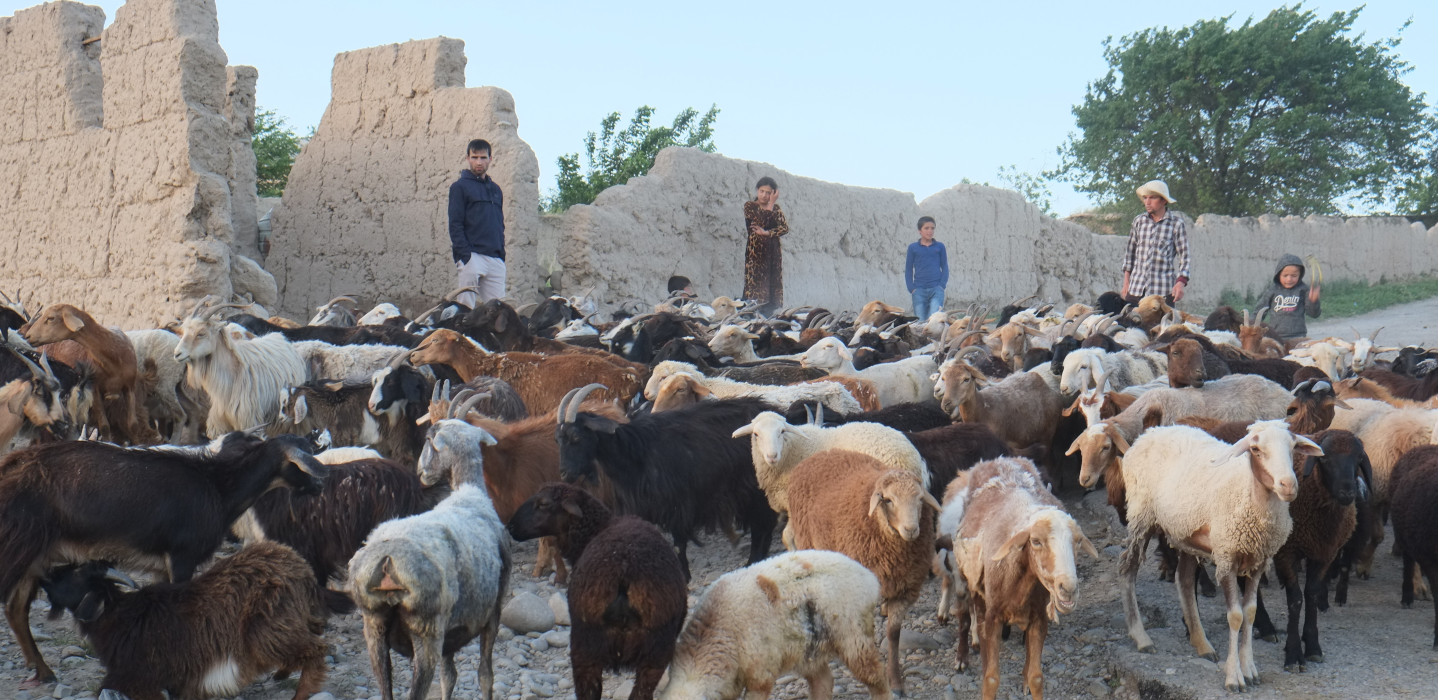The importance of data management for pastoral communities
IFAD Asset Request Portlet
Asset Publisher
The importance of data management for pastoral communities
Estimated reading time: 4 minutes
Globally, between 200 and 500 million pastoralists manage rangelands that cover over a third of the Earth’s landmass. Most of them produce food in the world’s drylands, mountains and cold regions – places where no crops could thrive – relying on strategic mobility to mitigate risks and adapt to variations in climate. In sub-Saharan Africa, roughly 300 million people rely on pastoralism and agro-pastoralism for their livelihoods, while in South Asia, an estimated 600 million people depend on livestock. Yet despite pastoralism’s significant contributions to household incomes and the GDP of many countries, there is a lack of reliable data on its production.
Over the years, governments have often neglected to invest in rangelands, or to provide public services and tenure security. The private sector has also not always been keen to invest. Along with investors’ lack of knowledge about pastoralists’ contributions to territorial, regional and national economies, these communities remain misunderstood, neglected and sidelined from decisions that affect them.
The importance of effective data collection systems is particularly evident during crises such as the COVID-19 pandemic and natural disasters. The effects of COVID-19 on the livestock sector, for example, are still largely unquantified and yet to be fully felt. While no formal assessments have been carried out, observations by FAO already show severe disruptions to livestock value chains, increased limitation in movements, and consequent conflicts over natural resources use. Availability of data would facilitate not only the rapid mobilisation of assistance, but also a more effective use of resources to provide relief.
At a special session of the 2016 Farmers’ Forum with Pastoralists and Livestock Breeders, IFAD was called upon to reinforce the institutional capacities and governance of (pastoralist) organisations to improve data collection systems, support access to knowledge- and experience-sharing, and amplify pastoralists’ voices in policymaking processes. As a result, an IFAD-funded Pastoralist-driven Data Management Systems Project was implemented in Argentina, Chad and Mongolia, through the FAO Pastoral Knowledge Hub in partnership with the French Agricultural Research Centre for International Development (CIRAD) and three pastoralist organizations, one from each implementing country.
The objective was to strengthen the capacities of civil society organisations for pastoral data collection and analysis and information management to facilitate evidence-based policy decision-making.
The project, which contributes to SDG 1 (No poverty), SDG 13 (Climate action), SDG 15 (Life on land) and SDG17 (Partnership), was founded on the idea that pastoralist associations could be in charge of collecting, managing and sharing data in their own communities. A preliminary step consisted of two surveys: the first one focused on identifying and describing the pastoralist population in each of the three countries, while the second took the form of an in-depth assessment of each pastoralist economy and its contribution to the national economy.
The data for these surveys were collected between June 2018 and September 2019. Data were collected via tablets wherever possible (though sometimes in paper format in locations where internet connections are poor) and routed to the Open Foris server based at FAO in Rome. This process made it possible to monitor the information collection process on a day-to-day basis and make adjustments as necessary. CIRAD was in charge of extracting the information required for the analysis and ensuring its accuracy and integrity.
The information generated by this project has been used since late 2019 to support national and international advocacy for better-targeted policies supporting, among other things, the tangible contributions of pastoralism to the sectoral and national economy.
The project demonstrated that, with adequate training, pastoralist organizations can autonomously manage the collection, analysis and distribution of reliable and accurate data on their own communities. Adequate data collection and management allows us to understand the contributions of pastoralist communities to both household wealth and the national economy. This includes the value generated by pastoralists for their own consumption, which is often neglected at the national level.
These data also shed light on the challenges pastoralists face, including high disparities in access to productive resources such as land, infrastructure and basic social services. They also highlight the resilience of pastoralist communities. Although these communities operate in shock-prone environments, they nonetheless take advantage of it by strategically using all the resources at their disposal: mobility, family labour, asset sales etc.
Pastoralist organizations can mobilize these newly available data to advocate for their recognition both nationally and internationally, increasing their engagement with national authorities and research institutes. Thanks to the implementation of a socioeconomic and environmental Observatory of (Agro) Pastoralism, a tool for data generation and visualization will be developed to continue disseminating knowledge on the topic.
The Pastoralist-driven Data Management Systems Project combined a global, comparative initiative with local, context-specific methodologies. It showed the relevance of working with different countries simultaneously to gain a broad overview of trends and phenomena, while at the same time tailoring methods, logistics and incentives to the specific contexts.
There is a long way to go before the contributions of pastoralism will be fully understood. In the countries where the initiative took place, further advocacy and more data analysis – for example, of gender-related trends – is still needed. In order to meet these goals, a comprehensive value-chain approach needs to be implemented, and new tools and approaches to address the multi-functional nature of pastoralism need to be developed.
Publication date: 10 July 2020